I Made A Pro-Tribal Film — Not Left, Not Right: Chhatrapal Ninawe On The Politics Around Ghaath
In this conversation, filmmaker Chhatrapal Ninawe breaks down the politics of representation, the pain of being sidelined by studios, and how a silent character became the soul of his film, Ghaath.
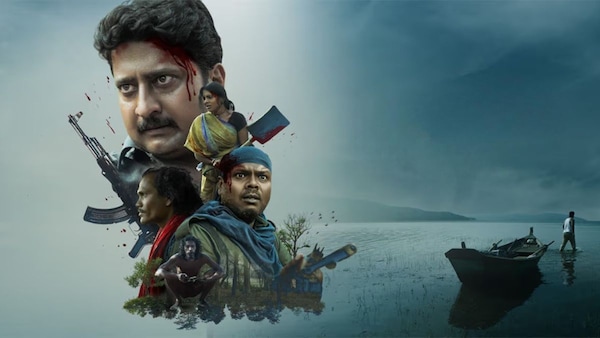
Promo poster for Ghaath.
Last Updated: 10.06 PM, May 30, 2025
FILMMAKER CHHATRAPAL NINAWE'S journey with his debut film Ghaath is one he wouldn’t wish on his worst enemies. Ghaath was selected in the Panorama section of the Berlin International Film Festival, or Berlinale, in 2021. And then the producing partner retracted the film from the festival without any explanation to Ninawe, even refusing to communicate or provide any clarity regarding the bizarre decision. After an extended stalemate, the other producing studio, Drishyam Films, along with Shiladitya Bora’s Platoon One, acquired the share of the former producing partner of the Marathi film. Ghaath premiered at Berlinale in 2023 and had a long festival run, stopping at MAMI Mumbai Film Festival and the International Film Festival of Kerala, followed by a theatrical release in September 2024. It is now out on Amazon Prime for rent. In this conversation, Ninawe opens up about this long, arduous journey that is unusual even for an indie film.
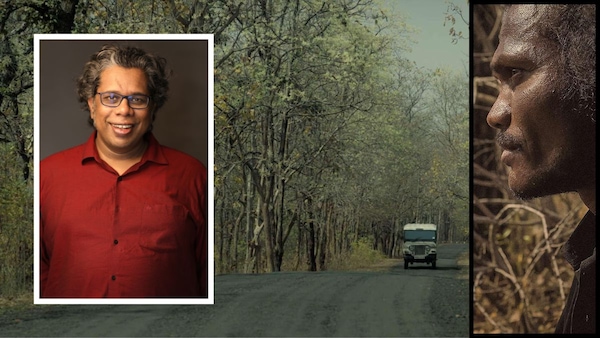
“It was the darkest phase of my life, frankly, because of uncertainty. What will happen with the film?”. Ninawe believed that it was a good film thanks to the Berlin invitation, but not knowing if it would ever find exhibition felt discriminatory. "Luckily, everything was resolved," he says. "I am thankful to everyone involved, especially Berlinale, because they went out of their way. Festivals don’t do that. If it wasn’t for Berlinale, the film would have never come out." The journey was emotionally fluctuating for him right from the start. They began as a true independent unit, and after Manish Mundra came on board, it became a little bigger. The film was first an independent unit, then a studio film and then went back to being an independent film. “If I had known this was the journey in store, I would have made a different movie. It was mentally taxing, a trauma.” He knows that all independent or arthouse productions have long unpredictable journeys, but he feels that this passage for Ghaath was harder than it should be for any film. “Even my actors wondered after a point, is it this difficult to make and exhibit a film?”
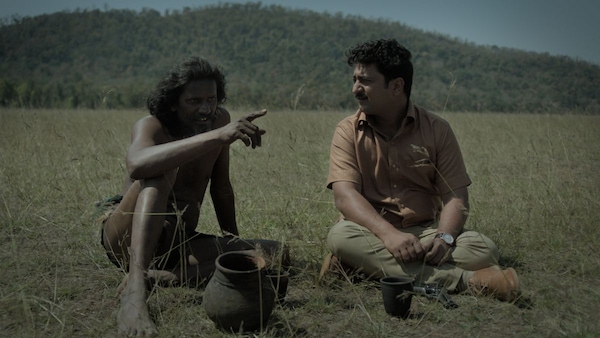
Ghaath combines genres to tell a multidimensional story through three main characters. It divides its perspectives on the Maoist struggle and the intertwining lives of the Adivasis through Falgun (Dhananjay Mandaokar), an undercover revolutionary, a ruthless policeman ACP Nagpure (Jitendra Joshi) and Raghunath (Milind Shinde), a revolutionary itching to get out. Ghaath works as part thriller, part drama in how it centres the plight of the local tribal populace caught between state violence and overreach, and a once righteous struggle getting out of hand. At the centre of this pro-tribal film are Kusuri (Suruchi Adarkar), a local woman who encounters Raghunath and Perku (Janardan Kadam), the last of his tribe living and manning an island all alone till Nagpure encroaches on his sanctuary. “I intended to tell a story from the tribal perspective, even though Falgun is tribal, Raghunath is tribal, and ACP is not. But they are also armed, so they are not a true representation”. For him, Kusuri and Perku are the real representatives of his film’s politics. He created these sidekicks for each of these main protagonists. For Falgun, there is an informer. For ACP, there is Perku and Raghunath has Kusuri. “My politics gives more importance to people, and both ideologies, the state or the Maoists, are killing people”. Ninawe received a wide array of reactions from the audience through the film’s festival run.
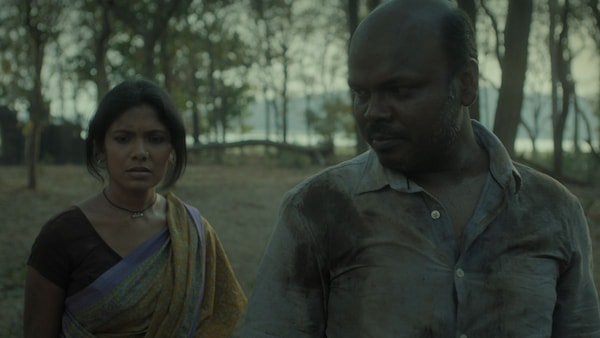
“Someone at a festival asked me why I am making an anti-left film”. The late Derek Malcolm, who was his mentor at the NFDC Work-In-Progress lab, told him his film is pro-Maoist. And in Kerala, a filmmaker asked him why his film shows Maoists in a bad light. Even though the film’s journey suggests there might be a fear about how the state would view this film, according to Ninawe, there are people who have felt it is a pro-right film. It is a good thing the film fosters such debate and reactions, but Ninawe finds it amusing that he made a pro-tribal film, and people love to label it this or that. He also feels the film received less publicity. “I think it got less coverage despite being a film with an indigenous point of view. Say, compared to Joram.” Devashish Makhija’s Joram starring Manoj Bajpayee premiered at the International Film Festival Rotterdam in 2023 and was released theatrically in December that year. “Of course it is a Hindi film, there is a star like Bajpayee. But, I am relatively speaking.”
For Ninawe, the audience reception has been great, especially the first act with Falgun, which has a mysterious allure with scarce dialogues and unfolds like a thrilling silent film. “Falgun is undercover, so he is careful, and he won’t speak a lot. He tries to keep a low profile, and that’s a theme. If the informer hadn’t come, it would be completely silent. The story required that kind of treatment.” For a debut film, one doesn’t think about the audience, Ninawe says, one just wants to tell a story. And the third chapter received some critique. “It is common feedback I heard. The first two chapters have a mystery, but suddenly I tried to switch the genre to drama in the third chapter. ” He holds the personal audience interactions dear, like in Berlin, where a former guerrilla fighter in the erstwhile German Democratic Republic or East Germany identified with the Maoists in the film. “I never thought a Maoist guerrilla fighter in Maharashtra would be relatable to someone in Germany”.
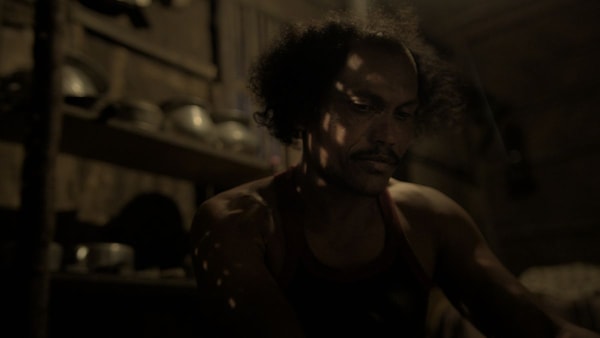
But the most favourable reactions have been to the character of Perku played by Janardan Kadam. A tribal man modelled after someone who has lived in the jungle all his life, away from civilisation, strikes up a strange rapport with a policeman. “He was just terrific in the audition. I imagined his look as someone who belongs to the first tribe that appeared in the subcontinent.” Kadam works with the Brihanmumbai Municipal Corporation and dabbles in theatre. He mentioned to Ninawe that due to his caste, he gets very few opportunities in film. “I told him that I don’t care if the audition is good, I’ll take him. And when I saw it, I was blown away.” Ninawe’s biggest challenge was getting a man born and brought up in Mumbai to play someone whose blood screams jungle. “Perku is not dumb, he cannot afford to be dumb. Every day, he must come up with ways to survive the jungle.” He arranged a workshop for some of the actors, took them to the forests and even spent a night there. “We had to understand how important moonlight is in the jungle and how dangerous it can be without it.” It is ironic to think that Perku is everyone’s favourite character, but he also represents the unattached tribal whom the state hates or does not care for. “Indian films show tribal characters as dimwits. Whatever reaction ACP Nagpure has towards Perku is exactly the reaction the state will have towards an Adivasi. They will feel bad, they might want to do good for these people, but when they want to achieve something to their own end, they will not mind erasing or invisibilising him.”
Ninawe is working on a coming-of-age film next, an autobiographical film about growing up around Nagpur, first love, school years and teenage violence. He also mentions a Hunt trilogy of which Ghaath is the first part, and he has the sequel in the works — about a nomadic hunting tribe in which a father-son pair go on a hunt and how the hunter becomes the hunted. But it is the coming-of-age film that he believes will go on floors first.
Ghaath is now available for rent on Amazon Prime Video
Subscribe to our newsletter for top content, delivered fast.
